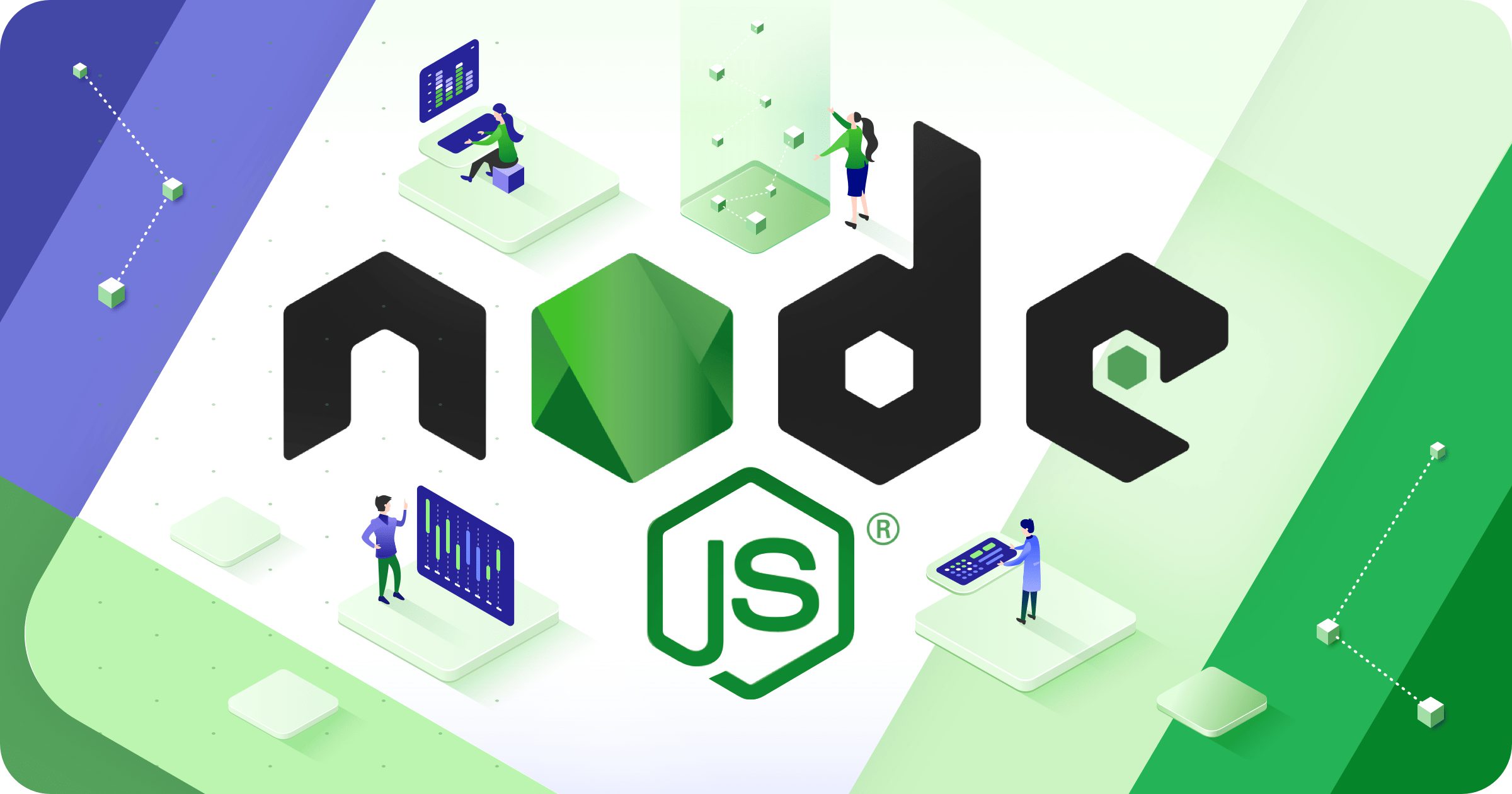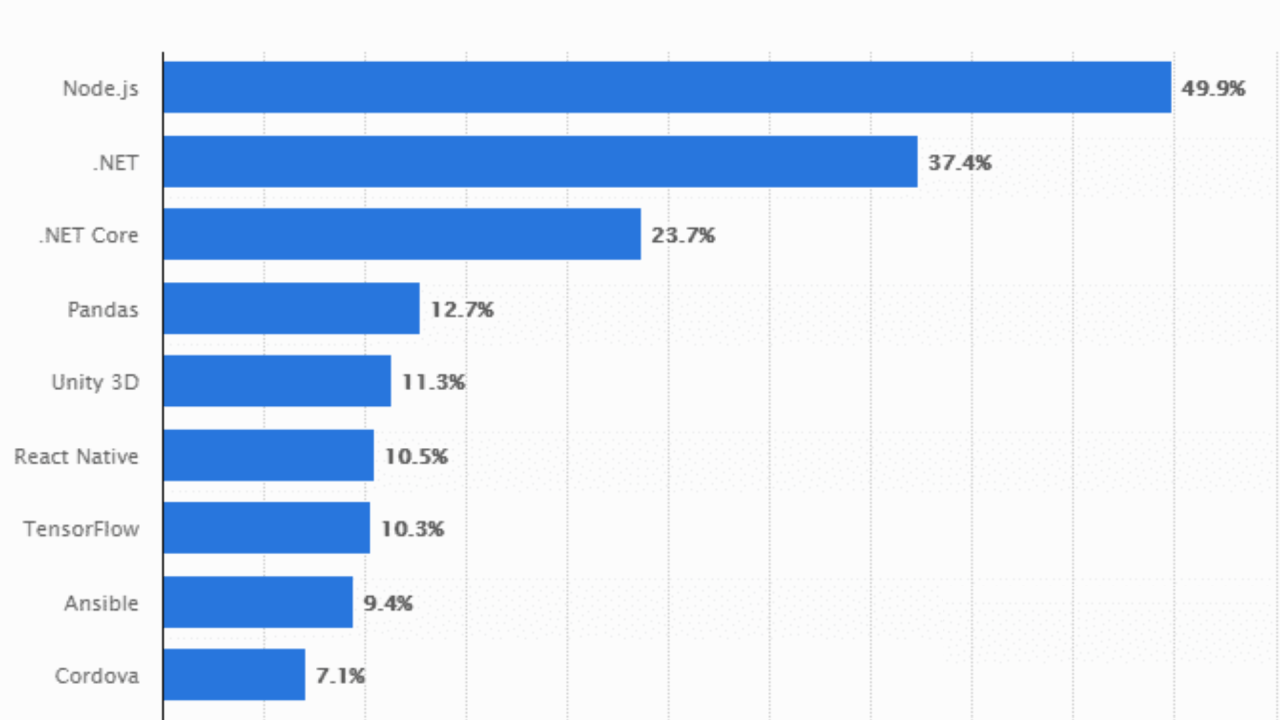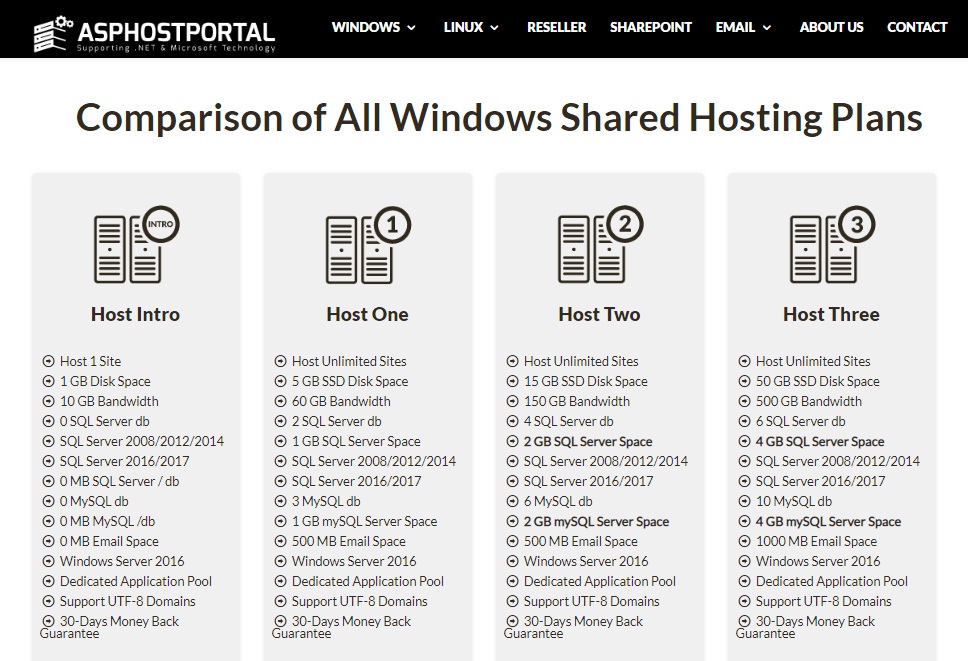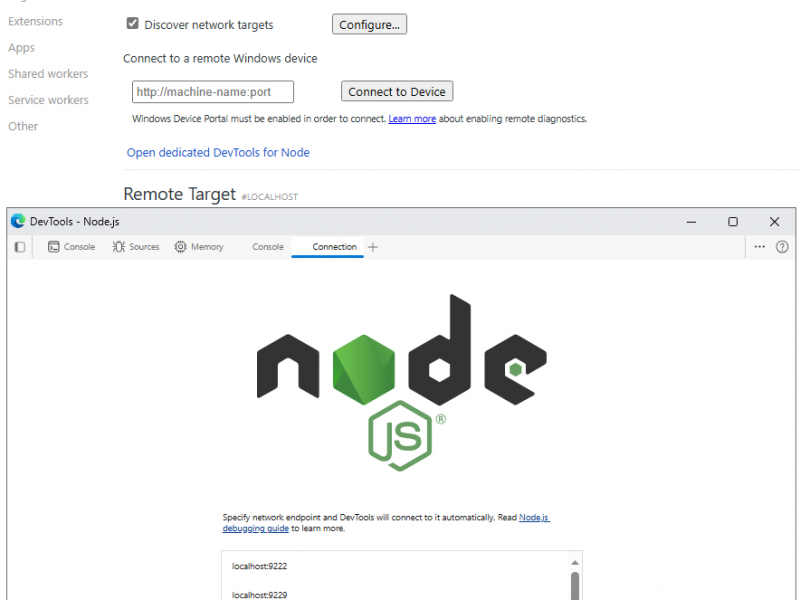Is NodeJS superior to other backend technologies? Why do big companies like Netflix, Twitter, PayPal, and LinkedIn use NodeJS to build applications? In this detailed article, we will answer all of these questions, defining why Node.js remains a useful and powerful backend tool, and comparing it to other options. Continue reading to learn about the true potential of NodeJS development, technology, and benefits today.
When it comes to NodeJS, this saying is particularly relevant to some developers. However, there is more to this technology or environment than is commonly perceived.
Node JS has its own category for backend development. And NodeJS is neither a programming language nor a standalone framework. In general, it is defined as a combination of both, i.e., technology or environment, which will be discussed later in this article.
When it comes to other backend technologies, including programming languages and frameworks, Node.js is without a doubt the best. Node JS is defined as an open-source JavaScript runtime environment built on Google’s powerful V8 engine.

In layman’s terms, NodeJS is a programming language that works well with a browser as a development environment. Node.js is well-known for its ability to work seamlessly as both a backend and frontend development environment. The design of NodeJS development is simple, similar to Python’s Twisted and Ruby’s Event Machine.
When compared to other server-side development alternatives, NodeJS is a powerful and lightweight runtime environment. That is why every NodeJS development company participates in the race to create web applications powered by the NodeJS ecosystem. PayPal, Uber, LinkedIn, and Netflix are just a few companies that have used NodeJS architecture for their web applications.
“As per StackOverflow Survey, Node.js is the most common web technology used by Professional Developers with 47.12%.”
In this article, “Why NodeJS is Better Than Other Backend Technologies,” we will look at whether Node.js is still a useful backend tool, compare it to other options, and reveal its potential for startups and large organizations. Continue reading to learn how you can benefit from using Node.js today.
Node.JS Introduction
Node.js is a runtime environment based on Google Chrome’s V8 JavaScript engine that allows you to create server-side applications. It is an open-source, cross-platform runtime environment for JavaScript that allows you to create server-side and real-time applications.
Node.js, which is written in JavaScript, proposes a framework for developers to manage the back end of web applications without using PHP, Java, Ruby, Python, or any other server-side scripting languages. Node.js combines front-end and back-end development technologies and runs applications on the server using its own runtime.
Some of NodeJS’s impressive features, such as efficiency and lightweight due to its event-driven model and asynchronous nature, encourage back-end developers to prefer Node JS over other backend frameworks and technologies.
Node.js is an excellent choice for developing data-intensive applications because it supports JavaScript on both the front and back ends. NodeJS’ event-driven architecture and I/O model make it the ideal choice for scalable and real-time applications.
How Node.JS Works?
Now the real question is, how does NodeJS work in real-time applications?
To answer that question, consider a real-time example of NodeJS being used by Netflix, one of the most popular online streaming platforms.
Using the main features and business benefits of Node JS, Netflix is primarily responsible for maintaining content streaming by handling millions of user requests. Netflix uses NodeJS as an event-driven, single-threaded technology to provide a continuous experience with no interruptions.
In addition, using other JavaScript frameworks or tools with NodeJS reduced Netflix’s startup times by 70% (from 40 minutes to 1 minute). Furthermore, the company streamlined the process of integrating microservices into an existing system.
Still, how does NodeJS work behind the scenes?
Let us consider PHP, a backend programming language. So, when comparing NodeJS and PHP, NodeJS completely handles concurrent requests using a single thread and does not block it for one request. And this is not the case for PHP.
In addition, NodeJS’s non-blocking I/O model enables you to create feature-rich, scalable applications from scratch. What you need to do here is install NPM (Node Package Manager) on your system to meet all of your project requirements. Then, leave everything to NodeJS.
Node.JS is FUTURE!

According to Stack Overflow, NodeJS ranked sixth among the most widely used web technologies in 2021. However, NodeJS web development for the backend has never provided assistance to developers.
Google Chrome’s V8 is a collection of libraries built on top of a powerful VM.
Node.js consists of Google’s B8 JavaScript engine, the libUV platform abstraction layer, and a JavaScript-based core library. As a result, the most recent version of Node.js, Node.js 21, includes an upgraded V8 engine (v11.8).
It’s also worth noting that Ryan Dahl, the creator of Node.js, was attempting to create real-time websites with push functionality. He provides a tool for NodeJS developers to interact with Node.js’ event-driven, non-blocking I/O paradigm.
How is Node.js different from other server-side frameworks?
One of the best and most promising features of Node JS is asynchronous events via JavaScript callbacks. That is what distinguishes Node JS from other existing server-side frameworks. Additionally, it employs JavaScript as a programming language. And, as shown in the image below, everything in NodeJS runs on a single thread.
Other server-side frameworks, such as PHP, JSP, and ASP.NET, already support multiple-threading web servers (IIS/Tomcat). As a result, they are classified as multi-threaded systems.
This system will restrict the number of threads. The framework has a maximum number of threads that it can support before decreasing throughput.
We discovered several issues with multi-threaded systems. After going through the points, you’ll understand why Node JS is superior to other server-side frameworks in recent years.
- It consumes a large amount of memory when under heavy load.
- Threads must wait until certain I/O operations are completed.
- Context switching and scheduling become significantly more complex as the number of threads increases.
This simply explains why many startups and large organizations prefer NodeJS development services to handle millions of concurrent requests.
Comparison of Node.js and Other Backend Technologies
What is it that seems to be driving every organization to adopt NodeJS technology? What makes NodeJS different from other backend technologies? Why do businesses use NodeJS for backend development? What makes NodeJS unique from other backend programming languages?
Well, now is the time to answer all of your questions and discover why NodeJS is raising the bar for backend developers.
Here we go!
NodeJS vs Java
When it comes to server-side development, which technology would you prefer for the backend: NodeJS or Java?
This was the most pressing question when Ryan Dahl introduced NodeJS, which spawned many popular Node JS frameworks in the developer community.
When comparing Java and Node, Java is the preferred platform for Android development, while Node is a better option for desktop application development.
Node is ideal for developing real-time applications, mobile and web applications, online gaming apps, and eCommerce applications. Furthermore, the NodeJS microservice architecture makes it simple to scale and power up your app.
On the other hand, Java is used to create CPU-bound and CPU-intensive applications with a large codebase. Java’s typed sources make it simple to fix bugs and maintain an application. In general, Java is preferred for RDBMS (Relational Database Management Systems).
Node.js vs PHP
There is no denying that PHP is one of the most demanding and popular programming languages, with excellent support for server management software. It is commonly used for content management systems and relational databases.
PHP development requires less code; however, NodeJS technology allows for greater code reusability. With improved code execution efficiency, Node performs better when transmitting data from the server in service calls.
Because Node provides far more server management options, PHP development recommends services that use a relational database or CMS. Additionally, PHP enables software development companies to reuse code with less authorship required. Furthermore, NodeJS offers faster processing and a quick w
Node.js vs Python
Python is an extremely versatile programming language for running simulations and machine learning on servers. On the other hand, NodeJS is widely regarded as the best backend technology for developing real-time web applications. Unlike Python, Node is an asynchronous programming language by default, providing greater flexibility.
Python, an object-oriented language, is very similar to Java. When comparing Python and NodeJS, Python is preferred for large projects and is well-suited to intensive calculation models, Machine Learning, Artificial Intelligence, and complex web app development. You can easily simplify the application logic by leveraging the Python libraries. However, its architecture complicates performance and necessitates technical expertise for uninterpreted support.
Node JS vs .NET
.NET development supports both the front and back ends of a project, thanks to its support for multiple languages. .NET is a free framework that is best suited for small and medium-sized projects. The primary goal of .NET is to create services, websites, and desktop applications that can run on a variety of platforms.
When comparing .NET to Node, developers can only use asynchronous code, which improves CPU speed and performance by eliminating thread context switching.
Why Choose Node.JS
Backend development is an essential component of the software development process. As a result, whenever you hire NodeJS developers, you must ensure that they pay attention to it and use NodeJS frameworks to make your application more powerful.
Let’s look at why Node isn’t just a good, but a better choice for backend development.
- Node.js performs well when dealing with large amounts of data in real time. Node.js allows you to collect data, visualize it, and present it as dashboards. Note that HTTP requests and responses are large data streams.
- Node.js backend programming is simple because it provides numerous functionalities that would be impossible to have in any other event-based context.
- Node.js is fast because it uses native JSON for its data.
- It is supported by a large community of developers who are constantly working to improve it. It handles high-level data streaming. Regardless of the underlying operating system, it is suitable for developing software that runs on multiple platforms.
- Because Node.js is non-blocking and supports async functions, it can handle multiple tasks concurrently. Server tasks are accelerated because the procedures are frequently executed in a single thread rather than queued.
- Node.js-based applications are more scalable and perform better.
- It’s easy to learn Node.js. Node.js developers are becoming more common, which reduces development costs when you hire NodeJS experts.
When Use Node.JS?
1. Will your app handle a large number of data and user requests at once?
NodeJS is an event-driven, non-blocking I/O model that enables you to create efficient and lightweight applications. This is why it’s ideal for data-intensive real-time applications.
2. Do you expect an increase in the number of users? Is your app capable of handling millions of traffic?
Node JS allows for more convenient data exchange between the client and server. As a result, it meets all of the development process requirements while also providing scalability and efficiency.
3. Are you planning to create a single-page application (SPA)?
There is no denying that Node JS is the most popular technology among many large enterprises. This is the best solution for developing Single Page Applications (SPAs).
4. Would you like to use open-source solutions?
Node comes with a large number of open-source libraries. This is possible because of JavaScript, which allows you to use the same libraries for both the front and back ends.
Bottom Line
Node is a truly transformative technology in web application development. Well, we know that it is not easy to find reliable hosting that support Node.JS, that’s why you can count on ASPHostPortal for your Node.JS hosting solution, our hosting solution will deliver a scalable performance for your application. For more
What we offer:
- Better pricing and value for money
- Feature-rich hosting plans
- 99.9% uptime guarantee
- Enhanced security features
- Global data center locations
- Multilingual customer support

Javier is Content Specialist and also .NET developer. He writes helpful guides and articles, assist with other marketing and .NET community work




